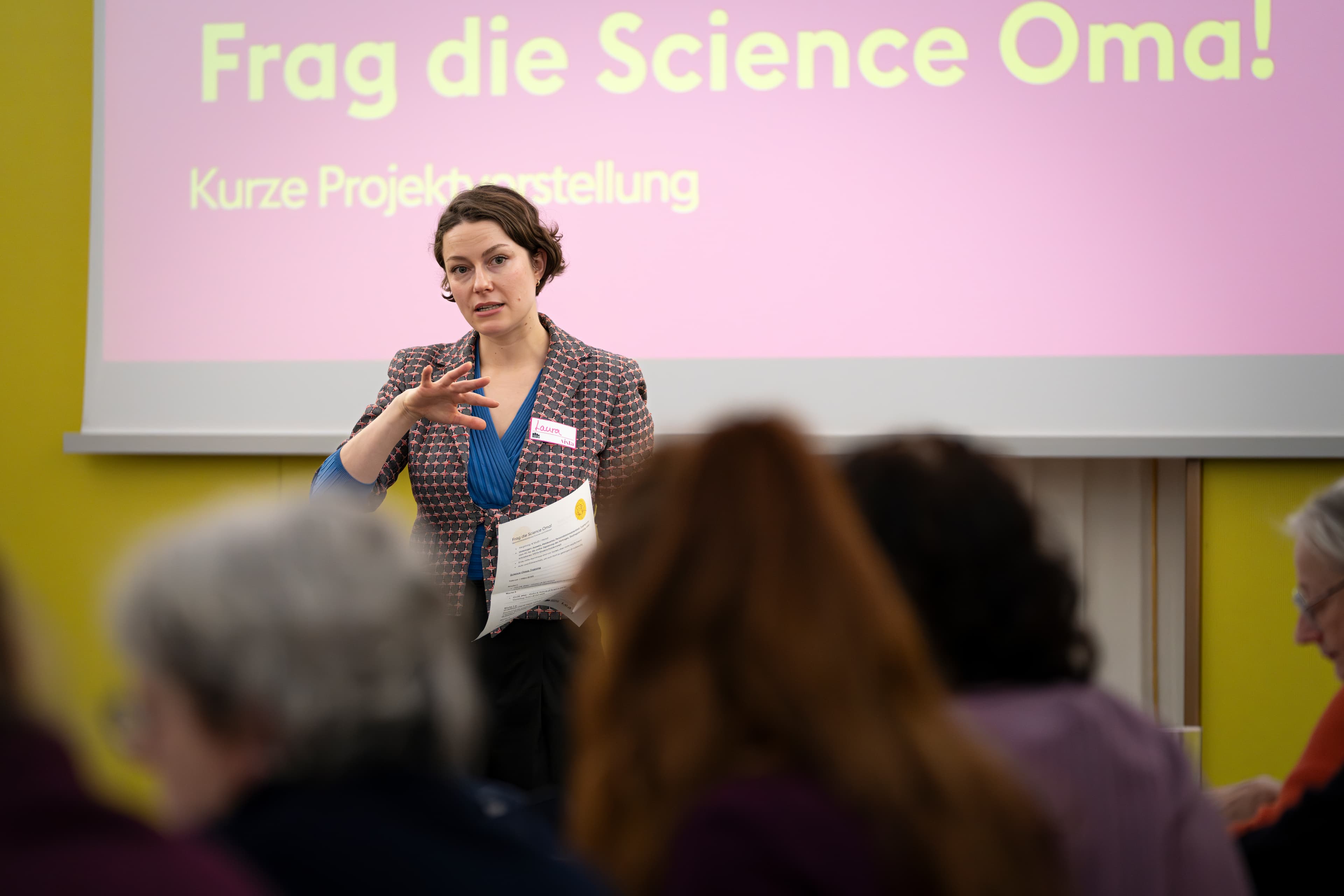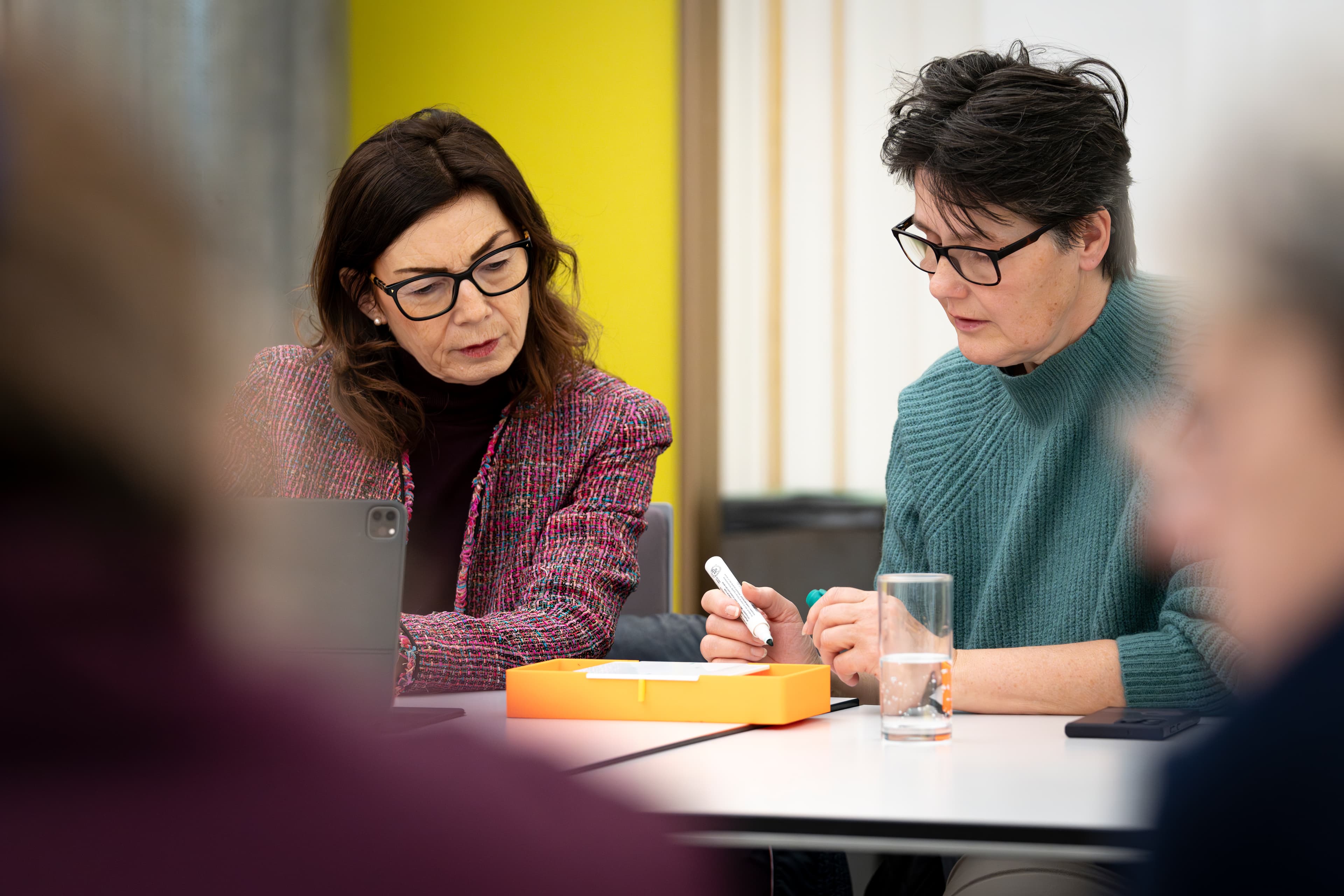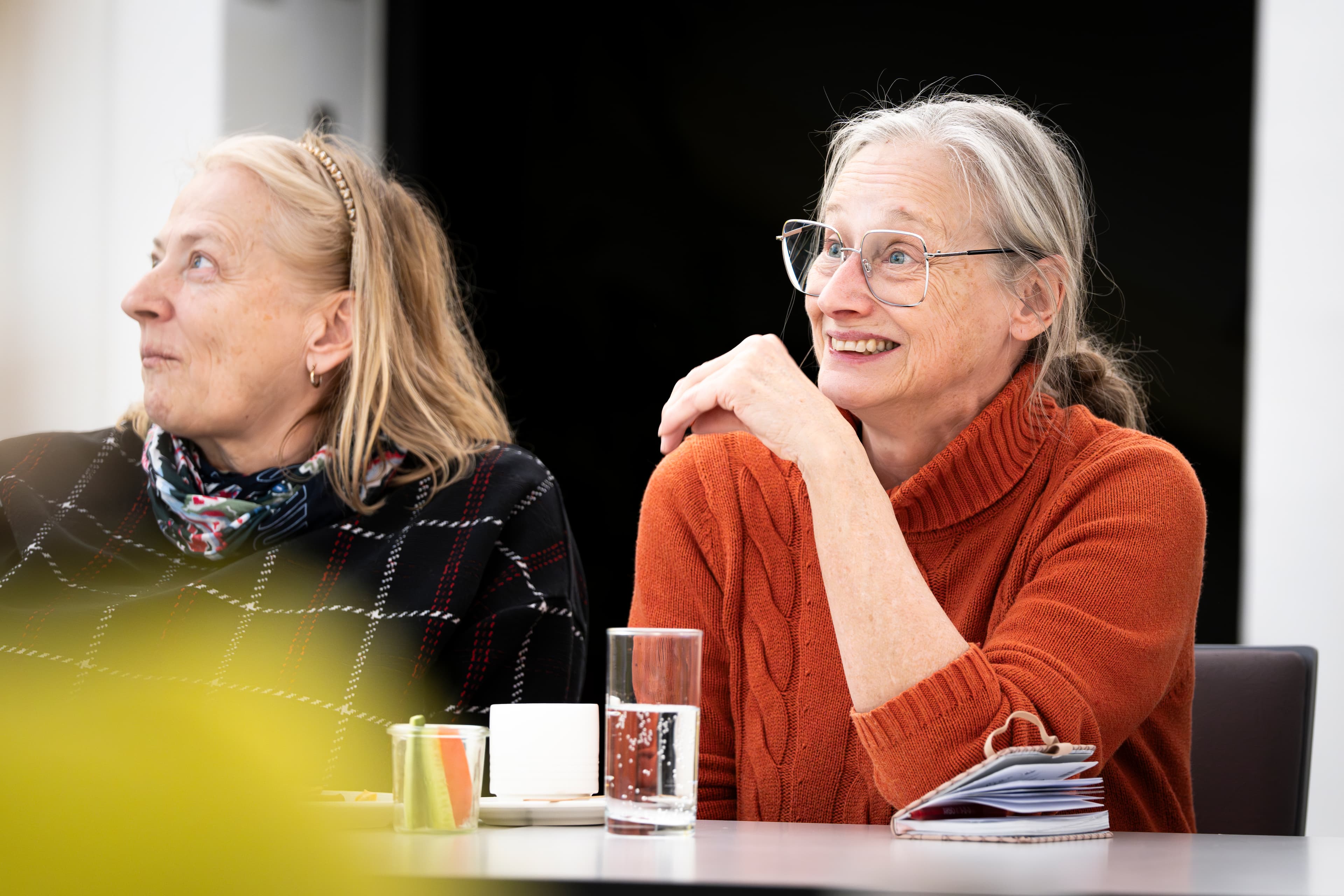Article
Ask the Science Grandma!
Science excites, connects, and inspires—and that's exactly what the “Ask Science Grandma!” project demonstrates.
In intergenerational workshops, women aged 60 and over and children aged 7 to 12 are encouraged to learn about science and its processes together. Through joint learning and research, the “Science Grandmas” serve as role models with their life experience, curiosity, and enthusiasm.
Project manager Laura Sartori provides insights into the VISTA project—the science communication program of the Institute of Science and Technology Austria.
“The idea arose from the desire to bring generations closer together while also involving those who are often forgotten.” – Laura Sartori
“Science Grandmas” – is this the science version of granfluencers?
The idea arose from the desire to bring generations closer together and strengthen their exchange. “Granfluencers” are trendy and open up new opportunities for older generations to serve as role models. In our project, we offer training for “Science Grandmas.” After the training, they visit schools and after-school care centers in the region, similar to the well-known reading mentors, and support educators in sparking enthusiasm for science with simple experiments.
Why is a project like “Ask Science Grandma!” necessary?
There are people we encounter in our childhood who provide us with different stimuli than those we receive from our parents or teachers, for example. Nothing is more valuable to a child than someone who takes the time to engage with them. Children love to try things out for themselves and follow their curiosity, and they benefit from appreciative guidance in doing so. This is exactly what “Science Grandmas” can offer! Through playful experimentation, children learn how research works. In science, the courage to ask questions and be curious is central. There are no wrong questions, but there are not always clear answers either. This is something you experience again and again when experimenting together. In training, the “Science Grandmas” learn to address this in a positive way. Together, it is possible to discover new connections and gain insights.
How did you come up with the term “Science Grandma”?
With “grandma,” we are linking to a term that many people associate with positive things, such as trust and care. Today, we also talk about care work, which is usually unpaid—that's the downside. Seamlessly connected to the care aspect are images of “grandma” baking cakes with children or knitting sweaters. We want to modernize and expand this perhaps beautiful but very one-sided image – because older women have always achieved so much more than that. In our project, we give women the opportunity to become more involved in research and STEM (science, technology, engineering, and mathematics) and to pass on their enthusiasm for it.
The “Science Grandma” thus presents older women as strong role models for scientific discovery. Whether or not she has children or grandchildren of her own, she can pass on her curiosity and inspire others.
That all sounds very positive...
Yes! But we also get feedback from people who find the word “grandma” derogatory. We know that gender terms polarize, perhaps even more so when it comes to older women. We think it's good that we're discussing this. But most of the time, the term “science grandma” brings a smile to people's faces. We want to support those women who welcome this new terminology. Not only ideologically, but also financially – the “science grandmas” in our project are employed and paid for their outreach work.
How do women feel about this, and are there any “science grandpas” too?
The feedback on the project has been incredibly positive! Many women are proud to be part of a “Science Grandma Workshop” and enjoy it immensely. “Ask the Science Grandma!” is a pilot project that we are able to launch thanks to funding from the Fund for the Promotion of Women and Girls (LEA). However, it should also be mentioned that male role models are rare for children in many elementary schools. “Science Grandpas” would indeed be a great thing!
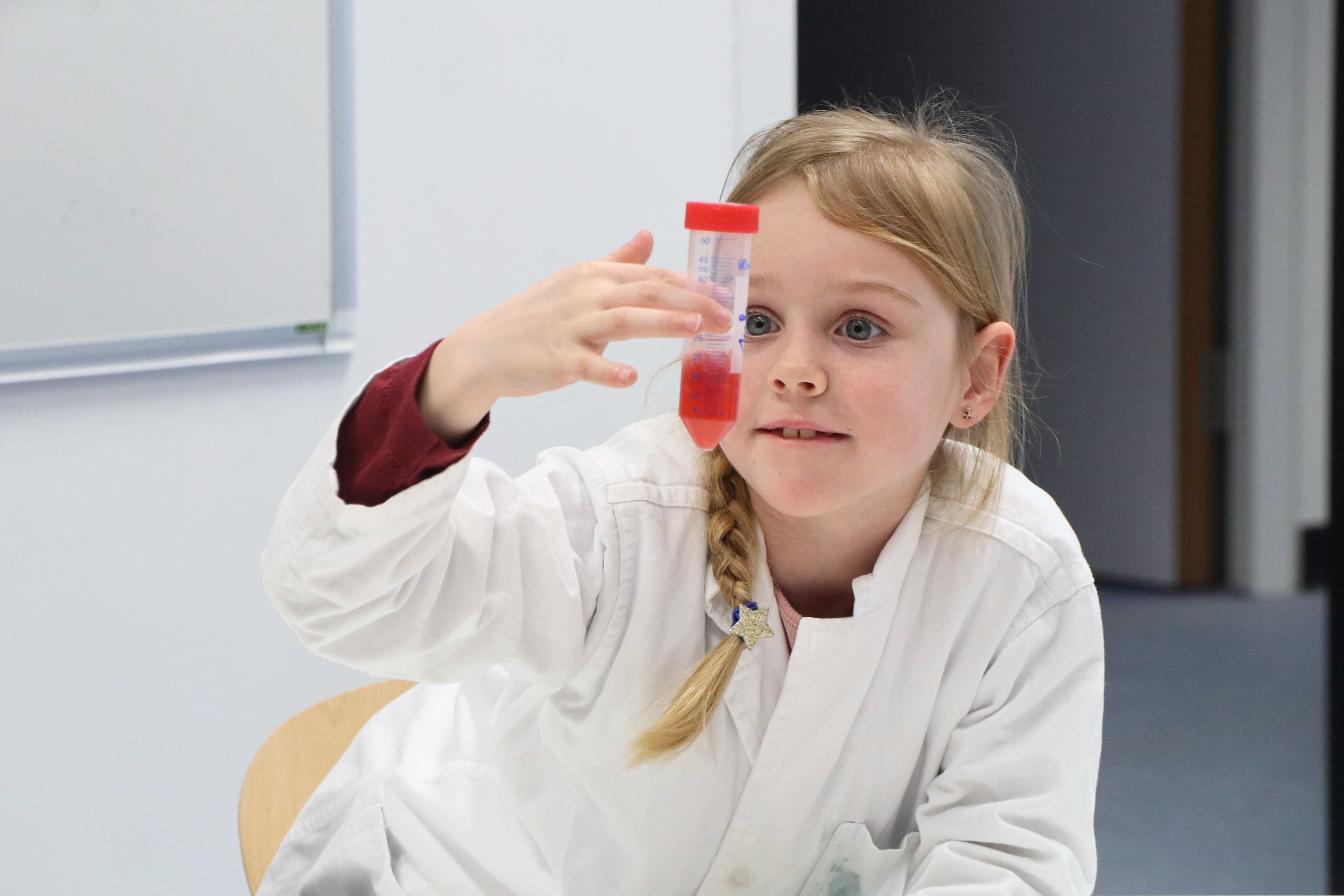
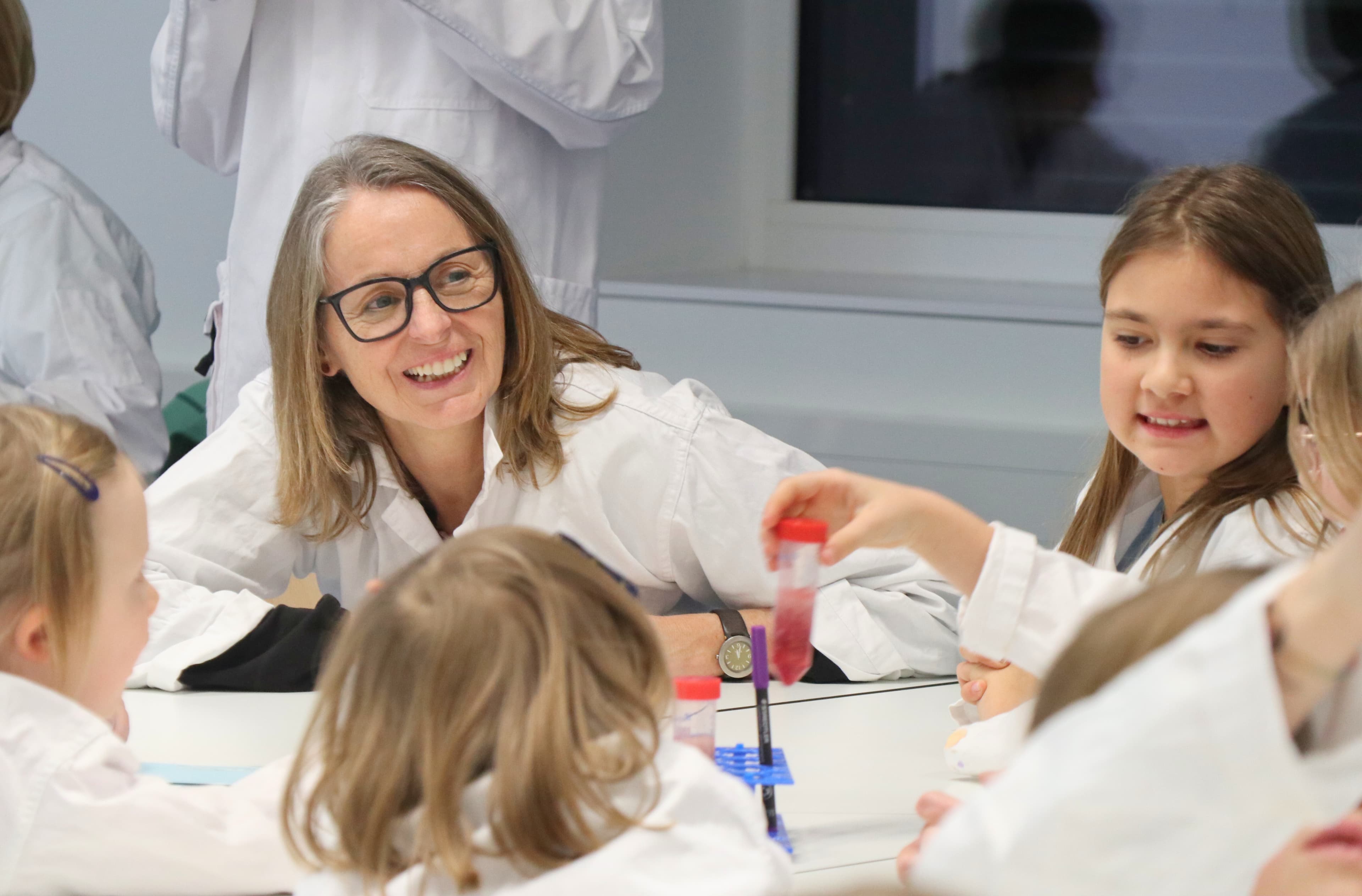
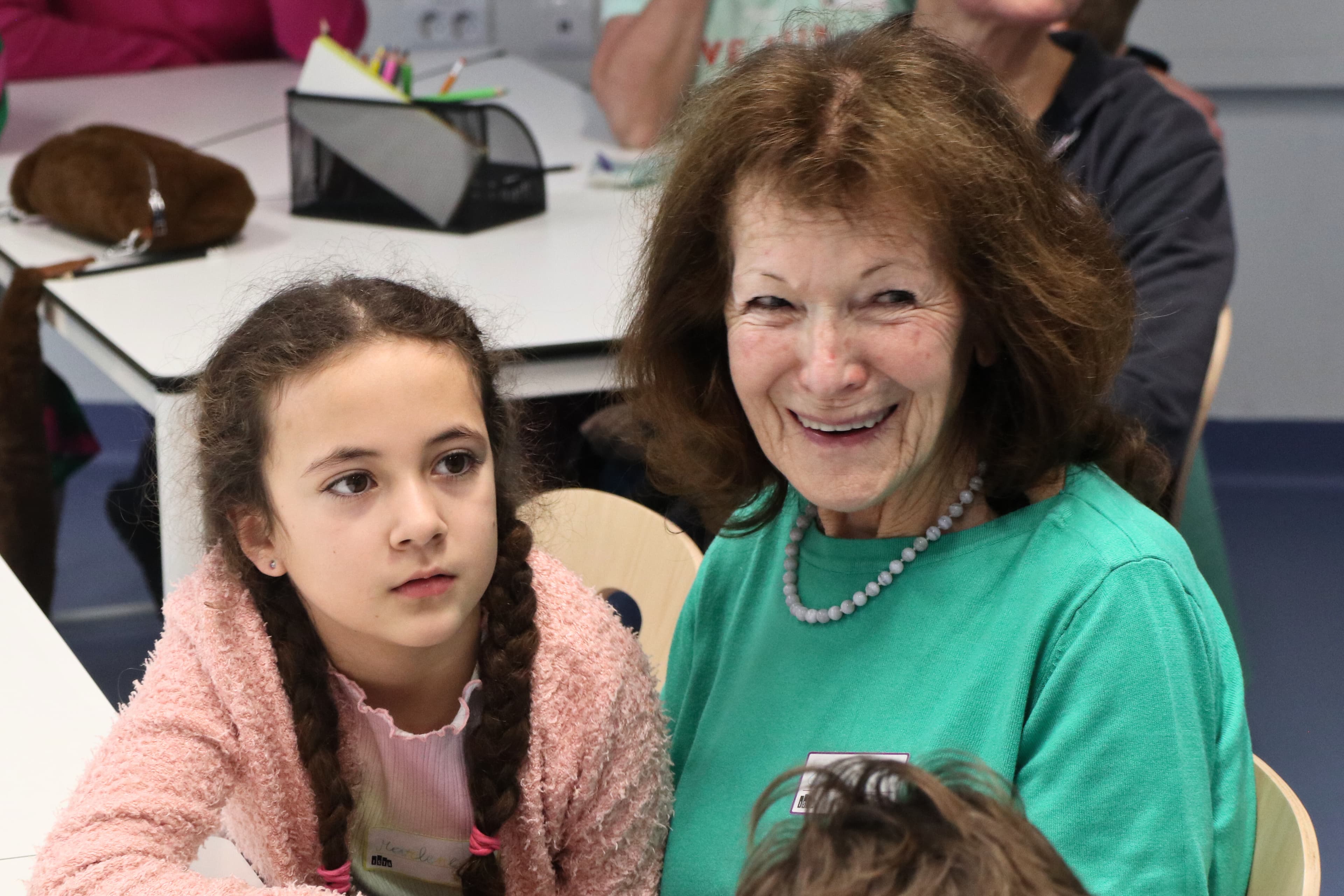
But is the project currently only open to women?
Yes. Central to the project is also the desire to make women with STEM skills visible and to treat them with respect. Older women in particular are far too often invisible in society. Grandmothers have always been present as accompanying persons at our science workshops for children. At some point, we realized that these women waiting in the lobby have so much potential thanks to their experience, their own curiosity, and their relationship with the children. So why not bring them in as co-pilots in science education? In addition, there are many women in Austria (25%) who are confronted with the prospect of poverty in old age. If we can show women opportunities for additional income through projects like this, there is even more added value.
What does the future hold for the Science Grandmas?
It is currently a pilot project, and we are delighted that it has been so well received. If it continues to generate this much enthusiasm, the idea may well be taken up elsewhere. Thanks to our connection to ISTA's science outreach program, we have a great starting point, but in principle, the project is simple: qualify, motivate, and connect with local stakeholders such as schools. There is still so much potential that we can tap into!
